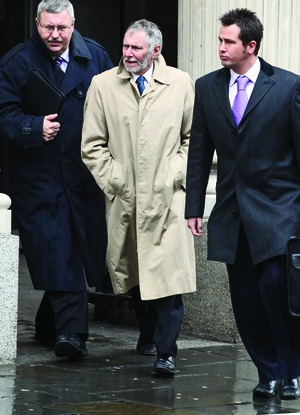Compared to all construction workplace safety penalties, the number of safety-related criminal prosecutions in the industry is small. Such cases force prosecutors out of their familiar territory of thieves, drug dealers and killers into the technical and organizational complexities of the jobsite.

But if the civil penalty doesn't seem to fit in a high-profile accident, prosecutors will press charges. For example, Manhattan District Attorney Cyrus Vance Jr. has won indictments against construction site supervisors in connection with the 2007 Deutsche Bank building fire, which killed two firefighters. He also won indictments against a crane operator and crane owner in connection with two tower-crane accidents that killed construction workers and city residents in 2008.
While such prosecutions aren't new, these and other high-profile cases indicate a desire to hold business managers and corporations to a greater level of responsibility. In addition to the New York City prosecutions, England's Crown Prosecution Service won a conviction in February in a jury trial in Winchester Crown Court against Cotswold Geotechnical Holdings Ltd. One of its employees, 27-year-old Alexander Wright, died in a trench cave-in in 2008. The company was sentenced to pay only a fine, a lenient penalty that was attributed to the firm's principal, Peter Eaton, having cancer.
That trial represented the first successful prosecution under England's corporate homicide statute, adoped in 2006.
To make their cases in the U.S. and other countries, prosecutors have to adapt—some would say bend—the original intent of manslaughter statutes.
“No one can deny that, in the fullest sense of the word, these were accidents,” says Marc S. Murphy, former chief prosecutor for Jefferson County and Louisville, Ky., who is now in private practice with Stites Harbison, a law firm. “Yet we are so offended by the tragedy of the deaths that we, as a community, demand more” than simple civil penalties.
To win their cases, prosecutors search for evidence of criminality, recklessness or hunger for profit at any expense, so the punishment—jail, felony convictions and so on—seems more appropriate.
Another recent U.S. criminal case brought charges against a fastener company linked to a ceiling collapse that killed a motorist in Boston's Central Artery Tunnel.
Under the Occupational Safety and Health Act, prosecutors can bring criminal cases only in limited circumstances. Only eight such cases that resulted in prison terms were recorded between 1970 and 2003 and just a handful since 2003. But OSHA believes prison terms are important as a deterrent for employers. One current case involves the deaths of five painters in Denver in 2007 in a chemical fire. Prosecutors have charged the utility Xcel, the owner involved in the accident, and painting contractor RPI Coating.
In 2008, the U.S. Labor Dept. fined the owner and contractor $1 million for safety violations, with most of the liability assessed against RPI Coating, Santa Fe Springs, Calif., and two of its executives. The firm allegedly failed to provide adequate ventilation and fire safety.



Post a comment to this article
Report Abusive Comment